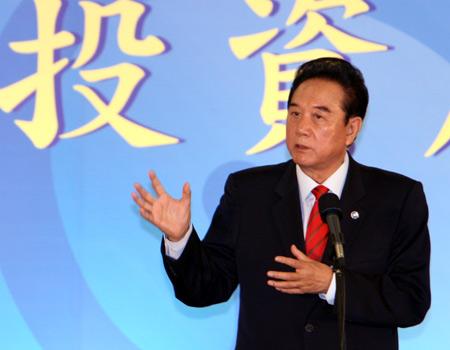Mainland business looks for wider opening of Taiwan market
2009-12-24 08:18 BJTSpecial Report: 4th Cross-strait Meeting Hosted in Taiwan |
TAICHUNG, Dec. 23 (Xinhua) -- Letting in more mainland investors again hit the agenda in Taiwan as negotiators from two sides discussed mainland investment with local business people Wednesday.
At the symposium, Chen Yunlin, president of the mainland's Association for Relations Across the Taiwan Straits (ARATS), suggested Taiwan should not be "afraid" of competitors.
 |
| Chen Yunlin, president of the Chinese mainland's Association for Relations Across the Taiwan Straits (ARATS), speaks on a symposium on the investment of Chinese mainland to Taiwan, in Taichung of southeast China's Taiwan, Dec. 23, 2009. (Xinhua/Yuan Man) |
When the mainland began to open up, the enterprises and industries also worried that they would be beaten by overseas competitors, but 30 years after, they not only survived but also became stronger, Chen said.
"High liquidity of capital, people, resources and knowledge across the Taiwan Strait will bring prosperity to both sides," he said. "The mainland's advantage in manufacturing and Taiwan's leading marketing will supplement each other. Thus, the two can form a bigger economic entity in face of global competition."
Taiwan's Straits Exchange Foundation (SEF) Chairman Chiang Pin-kun echoed Chen's remarks.
"(The mainland's) investment will bring more employment and boost economic growth, which will benefit both sides," Chiang said.
He admitted that not many mainland investors had entered Taiwan since the island lifted the ban in June, mainly because only a limited number of sectors were opened to them.
Another reason was that mainland investors were not yet familiar with the local market and business practice, Chiang said.

 Mail
Mail Share
Share Print
Print


 Video
Video









 2009 China Central Television. All Rights Reserved
2009 China Central Television. All Rights Reserved